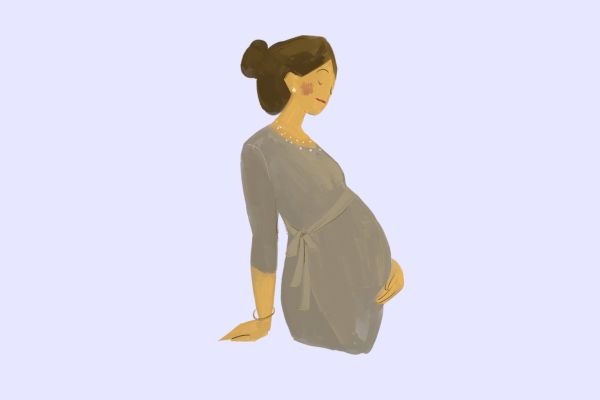Are Vietnamese guest workers entitled to maternity benefits according to the latest regulations?
Are Vietnamese guest workers entitled to maternity benefits?
Pursuant to Article 30 of the Law on Social Insurance 2014, it is stipulated as follows:
Coverage of the maternity benefits
The maternity benefits covers employees defined at Point a, b, c, d, dd and h, Clause 1, Article 2 of this Law.
Clause 1, Article 2 of the Law on Social Insurance 2014 stipulates as follows:
Subjects of application
1. Employees being Vietnamese citizens shall be covered by compulsory social insurance, including:
a/ Persons working under indefinite-term labor contracts, definite-term labor contracts, seasonal labor contracts or contracts for given jobs with a term of between full 3 months and under 12 months, including also labor contracts signed between employers and at-law representatives of persons aged under 15 years in accordance with the labor law;
b/ Persons working under labor contracts with a term of between full 1 month and under 3 months;
c/ Cadres, civil servants and public employees;
d/ Defense workers, public security workers and persons doing other jobs in cipher organizations;
dd/ Officers and professional army men of the people's army; officers and professional non-commissioned officers and officers and technical non- commissioned officers of the people's public security; and persons engaged in cipher work and enjoying salaries like army men;
e/ Non-commissioned officers and soldiers of the people’s army; non- commissioned officers and soldiers on definite-term service in the people’s public security; army, public security and cipher cadets who are entitled to cost- of-living allowance;
g/ Vietnamese guest workers defined in the Law on Vietnamese Guest Workers;
h/ Salaried managers of enterprises and cooperatives;
i/ Part-time staffs in communes, wards and townships.
...
Thus, based on the above provisions, Vietnamese guest workers are not entitled to the maternity benefits in Vietnam.

Are Vietnamese guest workers entitled to maternity benefits?
What are the conditions for enjoying the maternity benefits in Vietnam?
Pursuant to Article 31 of the Law on Social Insurance 2014 stipulates as follows:
Conditions for enjoying the maternity benefits
1. Employees shall be covered by the maternity benefits in one of the following cases:
a/ Pregnant female employees;
b/ Female employees giving birth to children;
c/ Female employees as surrogate mothers and intended mothers;
d/ Employees adopting under-6-month children;
dd/ Female employees having intrauterine devices or employees taking sterilization measures;
e/ Male employees currently paying social insurance premiums whose wives give birth to children.
2. To enjoy the maternity benefits, employees defined at Points b, c and d, Clause 1 of this Article must have paid social insurance premiums for at least full 6 months within 12 months before childbirth or child adoption.
3. To enjoy the maternity benefits, employees defined at Point b, Clause 1 of this Article who have paid social insurance premiums for at least full 12 months and need to take a leave during pregnancy for pregnancy care as prescribed by a competent health establishment must have paid social insurance premiums for at least full 3 months within 12 months before childbirth.
4. Employees who fully satisfy the conditions specified in Clause 2 or 3 of this Article and terminate their labor contracts or working contracts or cease working before the time of childbirth or the time of adoption of under-6-month children are still entitled to the maternity benefits prescribed in Articles 34, 36 and 38, and Clause 1, Article 39, of this Law.
Thus, employees shall be covered by the maternity benefits in one of the following cases:
- Pregnant female employees;
- Female employees giving birth to children;
- Female employees as surrogate mothers and intended mothers;
- Employees adopting under-6-month children;
- Female employees having intrauterine devices or employees taking sterilization measures;
- Male employees currently paying social insurance premiums whose wives give birth to children.
What are the allowance levels of the maternity benefits in Vietnam?
Pursuant to Article 39 of the Law on Social Insurance 2014 stipulates as follows:
Allowance levels of the maternity benefits
1. For employees entitled to the maternity benefits as prescribed in Articles 32 thru 37 of this Law, the allowance levels shall be calculated as follows:
a/ A monthly allowance must equal 100% of the average of salaries of 6 months preceding the leave on which social insurance premiums are based. For employees who have paid social insurance premiums for only under 6 months, the allowance level under the maternity benefits specified in Article 32 or 33, Clause 2, 4, 5 or 6, Article 34, or Article 37, of this Law, is the average of salaries of the months for which social insurance premiums have been paid;
b/ The per-diem allowance for the case specified in Article 32, or Clause 2, Article 34, of this Law must equal the monthly maternity allowance divided by 24 days;
c/ The allowance level after childbirth or child adoption shall be calculated based on the monthly allowance specified at Point a, Clause 1 of this Article; in case of odd days or the case specified in Article 33 or 37 of this Law, the per- diem allowance must equal the monthly allowance divided by 30 days.
2. The maternity leave period of 14 working days or more in a month shall be regarded as a period of social insurance premium payment. During this period, employees and employers are not required to pay social insurance premiums.
3. The Minister of Labor, Invalids and Social Affairs shall stipulate in detail the conditions for and period of enjoyment and levels of allowances applicable to the subjects defined in Article 24, and Clause 1, Article 31, of this Law.
Thus, the current allowance levels of the maternity benefits are implemented according to the above regulations.
LawNet
